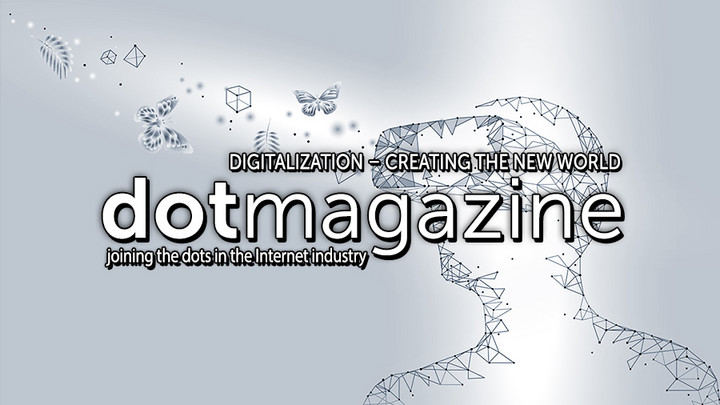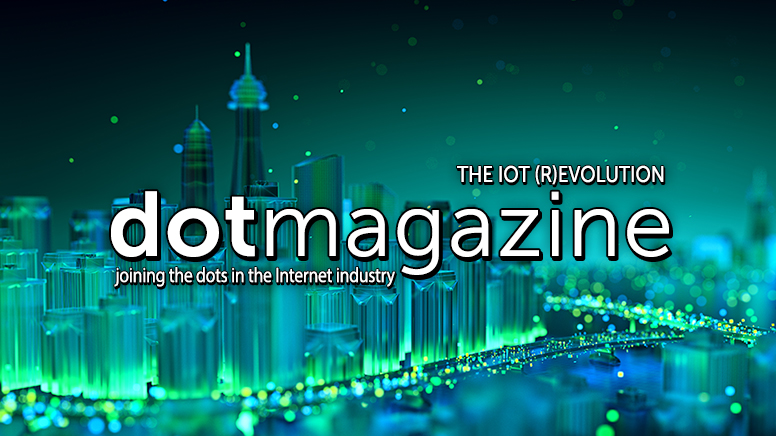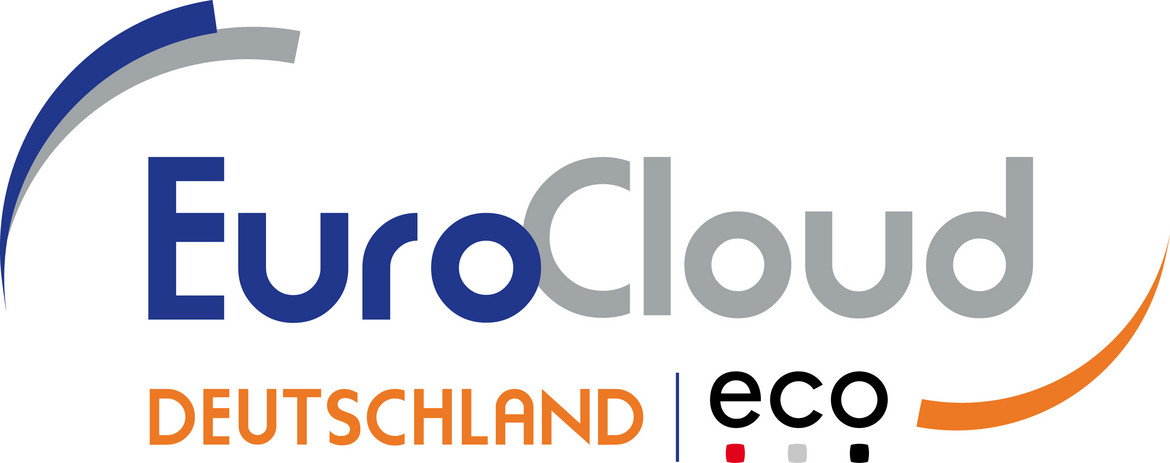doteditoral: Digitalization – It’s Only Smart When Everyone Understands It
Digitalization is a task for society as a whole, according to Andreas Weiss from the eco Association. But digitalization must serve a purpose, and can only be seen as smart when everyone understands it.

© LuckyStep48 | istockphoto.com
Last month we explored the scope of digital transformation, employing an evolutionary view of opportunities and changes effected by usage of modern digital services and their integration into well-known environments and procedures. In now approaching the topic of “Digitalization”, we encounter many more elements of disruption in the world we are familiar with.
When we look at chatbots, digital twins, augmented reality, and all the developments around smart cities and smart home, we realize that the world is changing, and not solely on the basis of technical enhancements.
It is a matter which concerns the future of job types and workplaces, life at home and in urban areas, mobility and transport, and healthcare. It is also set to change our interaction with governments and state administration, with cloud services and blockchain, for example, offering the scope to finally convert the concept of e-government into a reality (for more on this topic, read the article from EuroCloud France on how the French administration is moving into the cloud, or Stephan Zimprich’s article, “The Time is Now: The Need for Government Blockchain”).
The potential of digitalization and its effects on our social behavior and on society itself are likely to be massive.
Society between 0 and 1
Anyone who follows the constant transformation of information technology and has created possible solutions with it will be inclined to like “the New” and be comfortable with the changes – when they are useful and allow tasks to be dealt with faster, more cheaply, and more simply. Undoubtedly, there are advantages to automating monotonous and time-intensive processes, because it frees up time to live. But some people are considerably more skeptical and cautious.
There have always been technological changes, but previously, companies normally had enough time to adapt on a successive basis. They could make changes over a span of decades, without suffering any substantial negative effects. So everything was ok, as long as IT functioned as a service provider for companies and people. However, today, many see themselves as being driven by the information society in all facets of their lives, private and professional.
In the age of digitalization, the time-frame to adjust is getting smaller, and the pressure to act disproportionately stronger. We squandered a great deal of time, for example, in discussing the sense of the cloud, and in searching for reasons not to use it. Technical and legal concerns and the general question of the security of data were in the foreground of these considerations. With today’s discussion of digitalization, however, we are now getting to the crux of the matter for enterprises: How can industry adapt to the changed conditions in the global trade of goods and services, and how will future competitiveness be ensured? This topic is taken up by Lucie Poisson and Martin Schmidt from 1&1 IONOS in an article examining how SMEs need to respond to a changing business environment.
The way out of the digitalization echo chamber
I take it as read that everyone reading this has an open mind on the topic of digitalization, and is at the very least inquisitive about the topic. It is likely that you are interested in modern work processes and New Work (if so, be sure to read the article "Making the Leap to the New Digital Working Culture" by Lucia Falkenberg, CPO at the eco Association). You are probably also interested in digital devices, perhaps also voice assistants and smart homes. Maybe even artificial intelligence, the Internet of Things (here, an article from ImagineOn's Sebastian Floss offers valuable insights into prototyping IoT products and services), blockchain, and many more.
But we must bear in mind that we are in the clear minority, and we often neglect to shift to the perspective of the people who are not comfortable with IT. This remains the case even in a time when practically everyone has accepted his or her smartphone as an everyday object.
Much of what appears to us, from the IT sector, to be self-evident, logical, and sensible can nonetheless often instill a sense of uneasiness in the majority and lead to anything from outright rejection to existential angst, when, for example, it potentially affects employment security.
One of the big challenges is to outline what the benefits are of using digital technologies and how we as a society will deal with the concerns and the risks. In doing this, we need to always be aware that society is about much more than just blogging, posting, collecting and analyzing data, controlling manufacturing plants, and generating value.
So it always remains important to portray the context and demonstrate the sense of a choice. Let me give you a small example:
We, as the eco Association, are part of a project called “Smart Service Power”. The project addresses the following question:
“How can I, with autonomy and self-determination, live for as long as possible in my own home in my old age, with the security and safety of a retirement home?”
I am sure that most of us have at some stage asked ourselves this question, or at least can understand that this is relevant for the majority of our society.
So, what powers the project? A huge number of elements that are used to implement digitalization: Cloud, big data, AI, IoT, and many more. The type of ecosystem required to underpin this and smart projects in general is examined in greater depth in my article, "The Smart Digital Ecosystem". But to return to the point at hand: the core of the Smart Service Power project is the collection of data, and the intelligent correlation and analysis of it, so that services can be offered proactively or can eventually be automatically triggered. This is information technology again, but a not-to-be-underestimated proportion of the project work is concerned with the question: What is permissible from a data protection perspective?
Data protection: What are we capable of, and what do we want?
After all, in this project, sensitive personal data is involved, and that of course brings data protectors into the fray. These attempt, to a certain extent, to enforce sweeping limitations through regulations, given that the potential impact cannot even be predicted. In complying with data protection, we can, on the one hand, be thankful that companies are increasingly being supported by products and software which incorporate Privacy by Design at source (read the eyeo article, "Privacy by Design in Product Development" from Jutta Horstmann or listen to the interview "Data Protection in Software Development" by Dr. Judith Nink of eyeo).
But on the other hand, society also needs to step back and take a more detailed and differentiated approach to which data analyses can deliver added value, and also grant the data subjects involved a right to self-determination. Who is going to explain to a cancer patient that a study or a therapy has been defeated by the traps of complex data protection regulations? How do we want to achieve a reduction in traffic deaths, without making use of data and algorithms, which naturally make it possible to temporarily correlate people, places, and further information? In his article, “AI, Human Rights, and Algorithmic Transparency”, Michael Rotert, eco’s Honorary President, explores such ethical conundrums and outlines how the Council of Europe is seeking to respond to these.
So, when we talk about innovation, new worlds of work, and changes today, we should also see our responsibility to design these in a way that makes sense and is proportionate for the people involved. This is also a part of our ethical responsibility as the Association of the Internet Industry.
At this point, I would like to quote the spokesperson for a care service in the Smart Service Power project: “Technology should adapt to our customers, not the other way around”. Ethically managed, digitalization can contribute to an improved world, a fact also illustrated in an article by Génica Schäfgen of Ecosia.
It’s only smart when everyone understands it
My rallying cry to us all is to not lose sight of this aspiration: It’s only smart when everyone understands it. The spectrum of applications is immense, but it lies somewhere between:
“The Internet is unchartered territory” – as German Chancellor Angela Merkel declared in 2013 –
and
2029 is the year when robots will have the power to outsmart their makers – as Ray Kurzweil, Director of Engineering at Google and distinguished with 19 honorary doctorates, predicted in 2017.
Today’s information for tomorrow’s decisions
One thing is certain in any case: If you don’t have information under control in the company – and here, I’m not talking about the figures from accounting or controlling – you’re going to have difficulties making objective and justifiable business decisions in this ever faster-paced world. So we can be happy that there are intelligent systems for the management of information that simplify our decisions for tomorrow. And we can also be reassured that security issues impacting such systems are being broached more and more effectively through advancing technology, as elaborated upon by Kristina Vervoort of Netskope in her article on smart web security, and by Xantaro’s Nils Kammann in writing about artificial intelligence in cyber security.
At the end, we will see, disruption is the new normal.
Andreas Weiss has been Director of the cloud association EuroCloud Deutschland_eco e.V. since its foundation and has been active within eco since 1998. He played a key role in developing the EuroCloud Star Audit as the first cloud-specific auditing process and is part of various research and SME supporting projects like NGCert (Next Generation Certification) and Trusted Cloud. He is the co-author of both the book “Cloud Migration”, dealing with issues of quality requirements and selection criteria, and the EuroCloud Guidelines “Cloud Computing – Law, Data Protection & Compliance”, as well as the Cloud Acceptance Study. He has recently been appointed Director of Digital Business Models in eco – Association of the Internet Industry.






